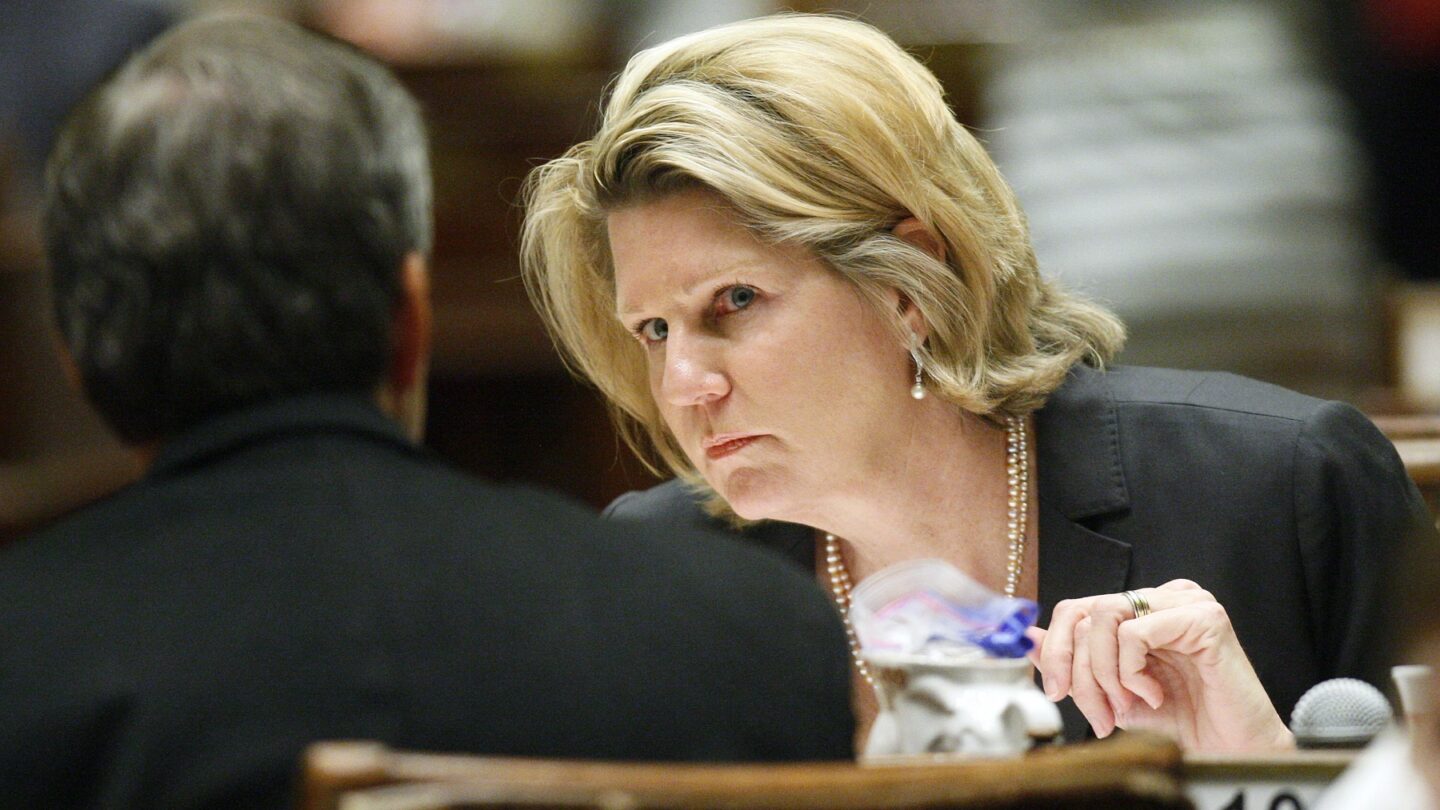Chair Of Ga. Legislature Harassment Review Panel Calls For Mandatory Training

Georgia House Speaker Pro Tem Jan Jones said different avenues are needed for complaints to be filed against lawmakers or staff.
John Bazemore / Associated Press file
The chair of a special committee tasked with reviewing sexual harassment policies at the Georgia statehouse said Wednesday any changes should include mandatory training and new avenues for lawmakers, staff and even lobbyists to file complaints.
But Republican Speaker Pro Tem Jan Jones, the second-ranking member of the House, said details need to be worked out as the committee meets in the coming weeks and hears the recommendations of employment lawyer Tashwanda Pinchback Dixon, whose services it has retained.
Democratic state Sen. Elena Parent filed legislation in December that would require mandatory sexual harassment training for members and employees of the General Assembly. Democratic state Rep. Dar’shun Kendrick said she plans to file similar legislation.
Jones said some training should be required, but wasn’t sure how it would be carried out.
“I haven’t drawn a conclusion yet as to how frequently that will be, and it might be different kinds of training depending on your relationship to the Capitol. Do you work here? Do you visit here?” Jones said.
Current rules in the Georgia House and Senate appear to give broad leeway to ethics committees made up of lawmakers over how harassment complaints are handled, including if they should be made public.
Some women who have worked or continue to work at the Georgia statehouse said they are scared to speak publicly about sexual misconduct, fearing retribution, further abuse or harm to their careers.
“If women have experienced abuse, and that’s really what it is, it’s a form of abusive power that happens to be expressed as sexual harassment, that makes me sad,” Jones said. “If they wanted action taken, or if they simply wanted it to stop without it becoming a formal complaint, I am sympathetic to them.”
Jones said there need to be different avenues for complaints to be filed against lawmakers or staff. While some individuals at the Capitol may just want the harassment to stop, others may want their complaints publicized, and if the accusation is serious enough, Jones said, it may be necessary for it to be made public at some point.
“There has to be room for discretion, and I believe that victims would want there to be able to be discretion, too. As long as we do it in a compassionate way toward the victim, while also allowing there to be a process for the person who is accused,” Jones said.
The special committee chaired by Jones was appointed by Republican House Speaker David Ralston. Apart from Jones, its five members are men.
This led to criticism, which came most publicly from Democratic candidate for governor and former state Rep. Stacey Evans.
The special committee is technically a subcommittee of the Legislative Service Committee, which includes Republican and Democratic leaders in the House and Senate. Jones is the only woman on that committee.
“I’m comfortable with it,” she said. “My colleagues that were selected, each one of them is a husband, they’re a brother, they’re a son, they’re a father. But we also don’t only deal with harassment issues that pertain to females, although I realize that is probably more common. It also pertains to men, and to other categories of protected groups.”








